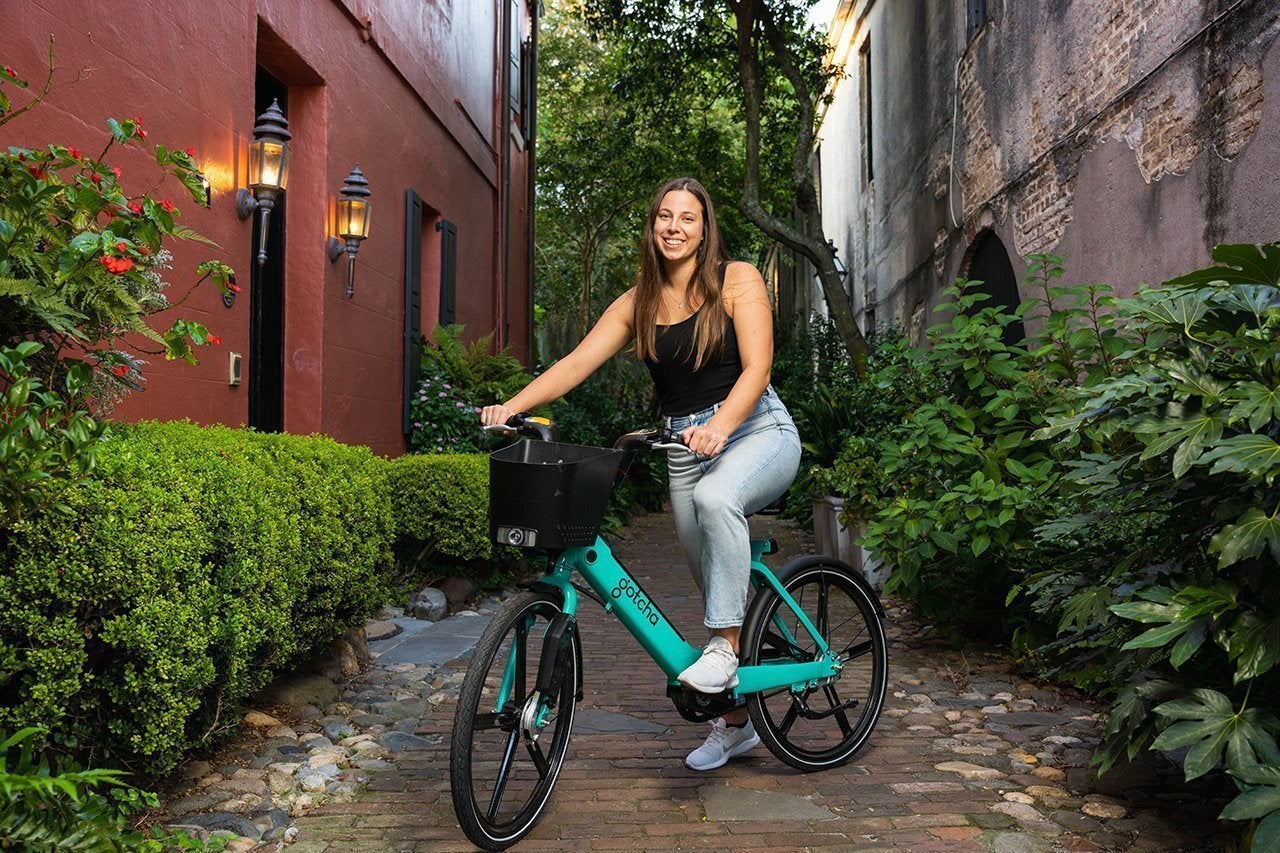Experts recommend at least 150 minutes of physical activity per week, but it probably comes as no surprise that over half of American adults don’t hit the mark. Senior exercise science major Jenny Sella has spent the past year and a half researching a unique solution – electric pedal-assist bikes.
Ebikes, as they’re known, are bicycles with electric motors that ease the climb up hills or long commutes.
The wheels started to turn for Sella when Department of Health and Human Performance Assistant Professor Morgan Hughey told her about her research project on ebikes used in bike-share programs. The study aimed to quantify the differences in energy needed to use a regular bike-share bicycle compared to an ebike and to examine perceptions of difficulty between the two bike types.
“We hypothesized that ebike rides would use about 25% less energy, yet individuals would report greater enjoyment on the ebike,” says Sella, who comes from the Washington, D.C., area. “Essentially, although ebikes may not offer as much physical activity, we predicted that they would be more enjoyable and still raise one’s heart rate enough to offer substantial activity ‘points,’ making them all around more favorable to a city’s population.”
With support from a Summer Undergraduate Research with Faculty (SURF) grant and bikes provided by research partner Gotcha Mobility, the Honors College student spent 10 weeks over the summer collecting data from 16 subjects, who participated in a baseline fitness test, rode a normal bike at a leisurely pace for an hour and – on a subsequent visit – rode an ebike for the same amount of time. Participants – who wore a heart rate monitor to collect second-by-second data on heart rate, speed, distance traveled, etc. – were stopped every 15 minutes during each ride to report their enjoyment levels and then completed a short survey afterward.
“When I described the work that Jenny did to a few colleagues outside of the College, they asked what graduate program she was completing,” says Hughey, who consulted weekly with Sella. “This is the type of experience that the SURF grants can provide to students – and Jenny went above and beyond the expectations. I am so proud to work with such a talented student.”
Preliminary results confirm their hypothesis: The fun and ease of ebikes are proportionally higher than the decrease in exertion, making them an attractive way to increase physical activity. But, just as importantly, the research project got Sella’s critical-thinking wheels turning.
“The most exciting aspect was learning how to approach issues that arise in research,” she says. “Obviously, I always had Dr. Hughey for support and guidance, but she graciously let me take charge, which pushed me outside of my comfort zone and reassured me of my capabilities as an aspiring professional. I’m grateful to have that experience.”




